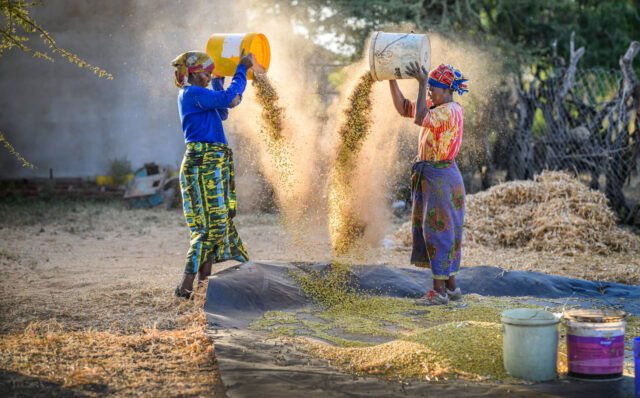In the United States, it’s easy to escape from God. Escape is a text message or a Facebook post away. But when I travel overseas, nothing clouds my relationship with God. Between him and me is only blue sky.
I feel God as stories unfold. I am a journalist, and I understand the tools I need to get a good story, but often the stories I find aren’t just good — they’re great. When people tell me their stories in a way that is dignified and true, I know that finding them had nothing to do with me.
I felt God a few weeks ago in Rwanda. Videographer Lisa Berglund and I visited a refugee camp that has sprung up on a hillside for families who fled from the Democratic Republic of the Congo. We’d learned that children were dying of malnutrition in the camp, and World Vision was going to begin nutritional support.
You can’t just walk into a refugee camp and begin asking questions. Protocols must be observed. So Lisa and I went to the nearby hospital to talk with doctors and nurses. They said we could visit the ward with malnourished children. Mothers and children sat quietly in a big green room on small twin beds. Some of the children had IVs. They all looked forlorn.
One mother sitting in the corner, cradling her baby was beautiful and regal. I made eye contact with her.
Solange was at the hospital with her baby, Esther, who was just 18 months old. The family had fled the Congo to avoid fighting. They left behind a house and a banana plantation. Their children had been in school. Now they were living in a tiny tent with nothing — not even a mattress.
Solange had been to the hospital just weeks ago with her daughter Rebecca, who was sick with a problem the doctors couldn’t diagnose. The 3-year-old had died in that very room where Solange now sat.
As we were preparing to leave, Solange asked me to pray for her.
I knelt by Solange and prayed that she and her family would get food, blankets, and a mattress. That peace would come to Congo so they could go home. I prayed for Rebecca, thanking God for her too-short life. And, of course, for baby Esther, that she would recover.
A few weeks after we returned to the United States, I received an email from a World Vision colleague in Rwanda:
It is with great sorrow that I announce the death of Esther, Solange Uwase’s daughter, the child in the story you recently did while you were here in Rwanda … Let us pray God strengthens Solange during this difficult moment.
In my office, I cried. How could this happen? How could Solange lose not one but two daughters?
And what about my prayer? As far as I know, none of my prayers at Solange’s bedside have been answered. The conflict continues in the Congo. I’m certain that Solange still has no mattress to sleep on, and the children don’t have the food and clothing they need.
And baby Esther is dead.
When I am faced with questions I cannot answer, I turn to people who can.
My friend Mark wrote: “This can be a tough job, and when things like this happen, it often makes you question why you do it at all. But in moments of darkness, there is always light. There are people you have met who have been forever positively changed. Families who were struggling have received help.”
Mark is right. In the moments of darkness, there is always light. Perhaps Solange’s story will touch the hearts of people who care and can make a difference for the families in that camp.
Esther’s face is etched along the corridors of my mind, and Solange’s pain is imprinted on my heart. Those images and feelings keep me doing what I do: finding the stories God wants told. It’s how I know who God is. That alone is a reason to keep writing.
And praying — even when my prayers aren’t answered in the way I desire.
Update: World Vision and UNHCR are currently working on a partnership to help alleviate malnutrition at the refugee camp.



